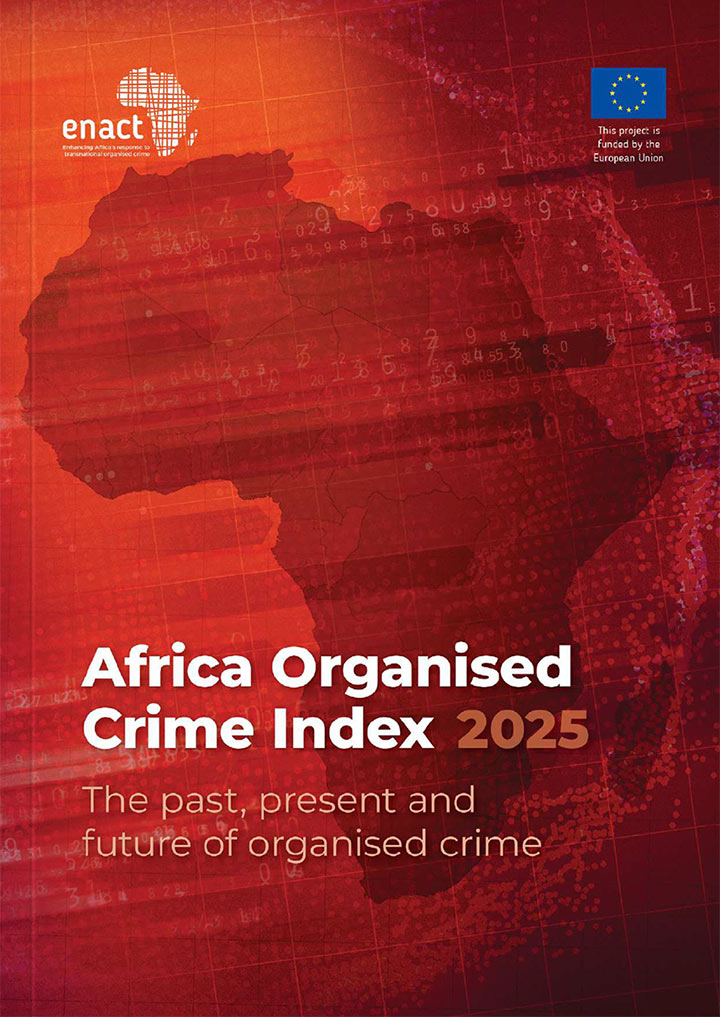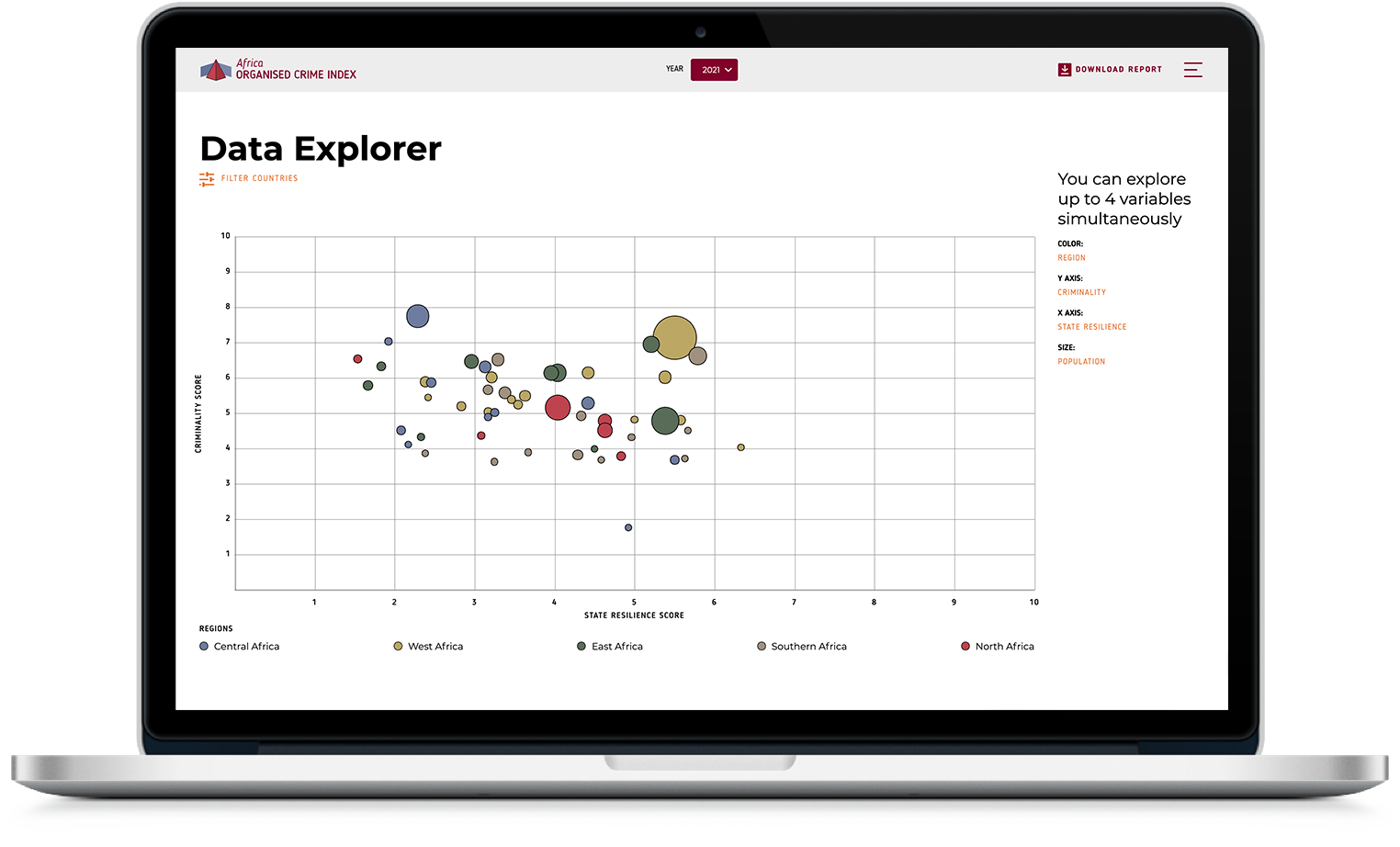Africa - Organised Crime Index
About the Index
The ENACT Organised Crime Index is a multi-dimensional tool that measures both the level of countries’ criminality and their resilience to organised crime.
The objective of the Index is to provide guidance to policymakers and continental regional bodies to prioritise their interventions on the basis of a holistic assessment of where vulnerabilities lie, and provide them with the means to measure the efficacy of their interventions. Developed over a two-year period, the Index draws from both quantitative and qualitative sources, and is underpinned by hundreds of expert assessments. The ENACT programme aims to encourage international and regional communities to move away from a solely criminal-justice-led response to organised crime, and towards a more comprehensive package of policies that can help mitigate the impact of organised crime, build local resilience and limit incentives for market participants. For more information about ENACT, visit enactafrica.org.






